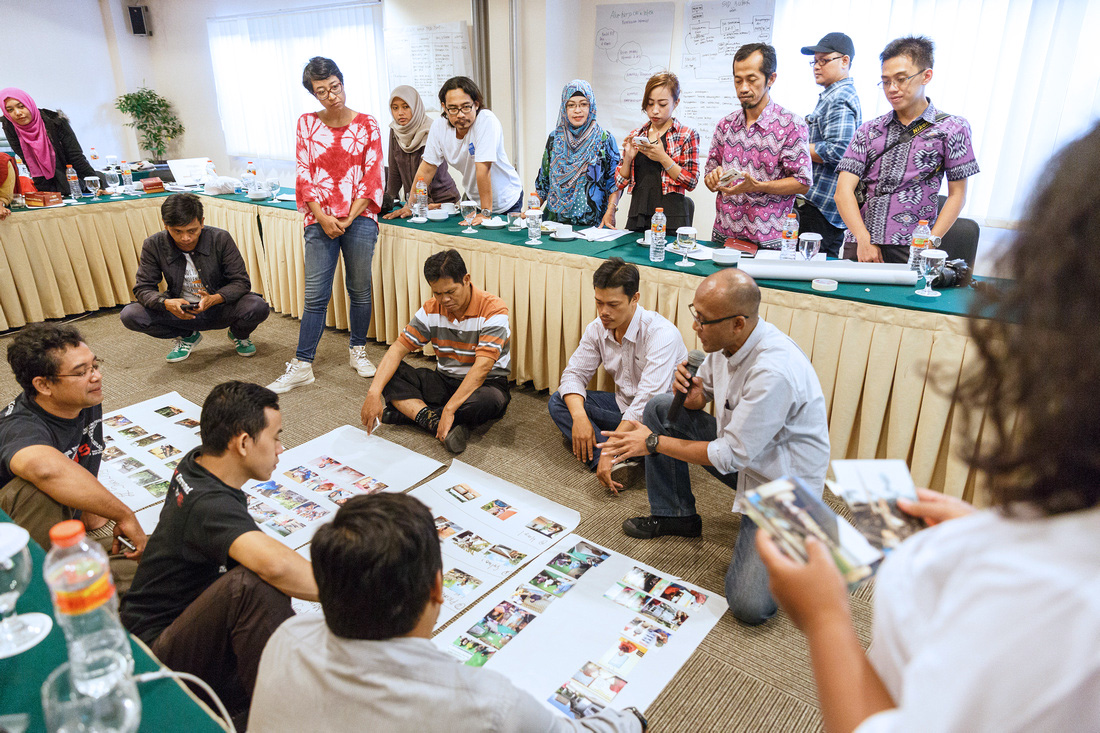
Though a rocky year globally, 2016 was a year of growth at the Jakarta Lab. We kickstarted new partnerships that took us out of our comfort zones, helped launch open data portals, took on the challenge of blending data with culture and with smart cities, and much more. Though we faced challenges along the way, we’re proud of what we achieved — and we’ll continue giving it our best for 2017!
Here are some highlights and lessons learned from 2016:
Portals are one step towards – but do not guarantee – greater transparency.
Early last year we partnered with Indonesia’s Ministry of Administrative and Bureaucracy Reform (Kementerian PANRB) and watchdog Indonesia Procurement Watch to launch two open data portals. By strengthening disclosure practices, we hoped to encourage key players in the government to be more transparent about public service delivery and we believed that making data publicly available would enable citizens to better hold institutions accountable.
However, we learned (or had that learning again) that the creation of portals is not always enough — institutions will not automatically commit wholesale to transparency or implement consistent, high quality open data. For open data portals to be both usable and useful, we need to standardise disclosure practices – how, what, where, when to publish government data. We also need to build the skills of people – such as businessmen, students, those working in civil society and even officials – who might use the data.
The “teach a man to fish” principle applies to working with open data.
One of the recurring challenges we face is that, even when people have access to useful data, they often don’t have the skills to use it. At the Jakarta Lab, we try to bridge this skills gap through through initiatives like Open Data Day, crash courses and trainings. We also document our models and lessons learned so others can replicate and tailor them to meet their needs.
We see real benefit when we train and work with partners through joint projects – giving them the skills they need to use open data to make an impact in their area. One such case was when our partner, E-Net Philippines, helped empower Ustadz teachers in the Philippines to use open data to urge the local government units to subsidise part of their work. Another success story is when our partner, GeRAK Aceh, used the skills we helped them build to influence mining policies in Banda Aceh using open data.
When creativity meets open data, together they can produce awesome, useful, – and maybe a little unconventional – things.
2016 was the year where we embarked on our creativity-meets-data journey, with our Data2Life. Life2Data., Southeast Asia Open Data Innovation Week, and Innovating for Open Cities projects, and was it a blast!
From using photography and storytelling as a way to show the impact of data on everyday lives in Yogyakarta, to working with innovation experts to co-build open data tools, these projects allowed us to view, understand and capture (open) data in different ways. We also incubated open data-driven, citizen-centric projects with three innovators who harnessed the power of open data to build more inclusive, open, and sustainable cities.
The photographs from the Data2Life. Life2Data. project are available online, and can be reused under a Creative Commons license. The tools created from the Southeast Asia Open Data Innovation Week will be published in April 2017 – so watch out for it!
Continuity is key to achieve change.
In 2015, together with the In 2015, together with the launch of the Jakarta Lab, we organised the Regional Open Data Agenda-Setting Workshop with representatives from across the Asia-Pacific region. Since then, we’ve been building on this event through our Open Data Asia 2020 projects, with support from other regional events and projects undertaken by the team. We’ve explored approaches to open data in Malaysia – where there are no strong legal frameworks for it yet -, connected follow-the-money initiatives in the Philippines, looked at the role of data in urban governance in Indonesia, and finally used open data to bridge information gaps within government in Nepal, together with our partners.
We believe that to achieve the objectives we set for open data in the region in the next years, we have to continue working and shaping the regional open data landscape to be more inclusive, transparent and impactful for all. This is why we embark on these projects and activities and look forward to continue growing them in the coming years.
We are dedicated to continuing our work in driving and partnering with others to increase the knowledge, use and progressive impact of open data.
To find out more about the Jakarta Lab’s activities, read our timeline at work, visit our project pages, check out our blog, or follow us on Twitter @ODLabJkt.
Leave a Reply